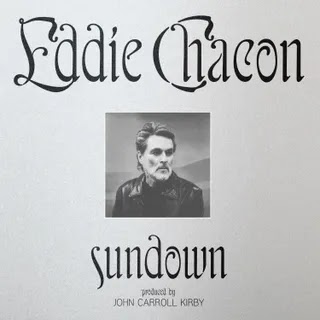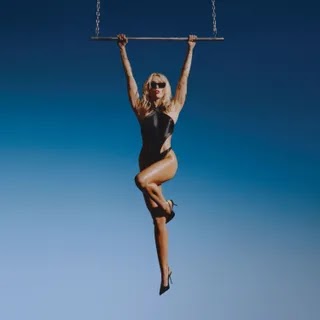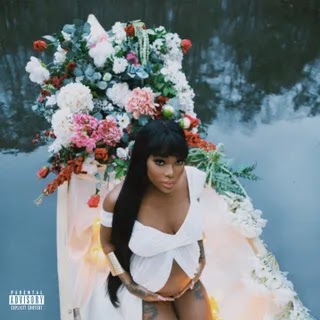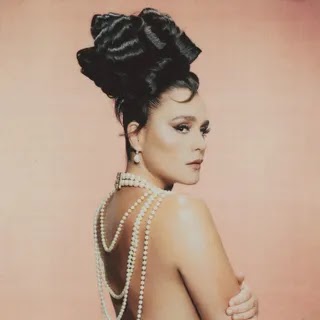The pop star’s first live album is a collage of Miley’s various eras and personas, not all of which have aged well or translate coherently to a live setting.
Miley Cyrus built a brand as a Disney Channel pop star and then spent the rest of her career setting fire to it, contorting through one highly-stylized phase after another in order to announce herself as anyone other than Hannah Montana. Sometimes, it seemed like she was actively trying to confuse her audience. Every album cycle brought something wholly different: She zigzagged through the foam-fingered, twerk-to-tweet pipeline of 2013’s Bangerz, the Flaming Lips acid trip that churns through 2015’s Miley Cyrus and Her Dead Petz, the country twang of 2017’s Younger Now, and the leather jackets and platinum mullet that ushered in her most recent studio album, 2020’s Plastic Hearts.
The longer this has gone on, the more she’s defined herself by her ability to transform. Like Taylor Swift perching on a pile of her past selves, Miley likes to wink at the caricatures she’s created over the years. She commemorated the tenth anniversary of the leaked TMZ video that lost her a Walmart deal by posting, “Happy 10-year anniversary to the groundbreaking video of a teenager smoking a bong & saying dumb shit to their friends,” on her Instagram. A decade after she had to issue an “apology” for posing for a Vanity Fair cover that showed her bare back, she tweeted a New York Post headline from the time that read MILEY’S SHAME. “IM NOT SORRY,” she wrote in all caps. “Fuck YOU.” These slot easily the wave of maligned female artists reclaiming their media narrative, and with every new declaration, she seems intent on articulating her legacy.
Midway through Attention, her first live album outside of the Hannah Montana concert recordings, Cyrus bellows to the crowd, “People, when they think about me, they think of someone…that’s been a million different things… A lot of different identities.” Over the 80-minute set, she toggles between poses, seemingly arguing that all these shards of Cyrus can coalesce into a cohesive musical identity—that she can compel a crowd not in spite of, but because, this disjointedness.
Attention captures parts of Cyrus’ November 2021 set from the Super Bowl Music Fest, where she opened for Green Day at what is now called the Crypto.com arena. Fans allegedly curated the live album setlist, and only two of the 20 tracks here are new, including the abrasive title track where she repeats the word “attention” over blares of faux-metal guitar before the layers of distorted shouting—“You’ve got questions? I NEED ANSWERS!”—kick in. It’s play-acted performance art, confused and unironic—and by the fourth time you’ve heard Cyrus screech “WRONG ANSWERS ONLY!” you wonder who this is for, or what it’s supposed to signify.
“You,” the other new offering here, fares better. It’s a throaty ballad, as Cyrus pleads for a specific vision of love: someone to get thrown out of bars with, someone to flip off her exes with. She interrupts the song’s charm when she chirps about a “horsey and carriage” in the chorus, but the baby voice becomes more tolerable when she soars out of it and starts to belt. That’s the allure of a Miley Cyrus live album: stripped from all the spectacle and scandal, the butter costumes and the prosthetic penises, you just get to hear her sing.
The strength of that voice—a guttural alto that’s raw and robust and gleaming—has made Cyrus uniquely gifted as a cover artist, imbuing motion and meaning into any track she touches. It’s telling that, on this album of fan favorites, seven songs are either entirely or partially covers. On some, Cyrus mashes her tracks into classic staples. She slips “Nothing Compares to You” into the middle of a slower, more ragged “Wrecking Ball.” Nancy Sinatra’s “Bang Bang” fades right into the thump and throb of “See You Again,” a jarring pairing that works because Cyrus’s voice can make a song she sang on the Disney Channel sound menacing. She shines on a ragged, stomping cover of her godmother Dolly Parton’s “Jolene”—“I cannot compete with you,” she spits, the hurt clear in her voice. “Jolene” bleeds right into “High,” a stunning one-two punch that highlights one of the best tracks Cyrus has ever written. The lyrics are sparse and shameless and acute—“In my head, I did my very best saying bye/And I don’t miss you, but I think of you and don’t know why I still feel high.”
It’s not just disconcerting, then, but disappointing to flashback to the more grating songs in her catalog. On the live album, it’s clear just how little irony there is in some of her notoriously nonsensical lyrics. “We run things/Things don’t run we,” she trills on “We Can’t Stop,” in the same tone she uses to belt the motivational speaker fodder, “The Climb.” “Driving so fast ‘bout to piss on myself,” she coos on “4x4,” nonchalant and unfussed. It would be unfair to expect Cyrus to edit her set down to only her strongest songs, but she seems hesitant to acknowledge the absurdity in her past music. Cyrus’ speech about her disparate identities comes at the end of the nearly nine-minute long version of “23,” one of a slew of Mike WILL-Made It collaborations that anchored her through the Bangerz era. “I’m in the club/High on perc/With my shades on,” she bleats in the chorus, her vowels clipped and staccato. Cyrus sounds limp, drowned out by the constantly swirling siren that underpins the song. It’s jarring to hear these songs now, and the appropriation baked into their legacy. For years, Cyrus clung to hip hop stylings and aesthetics, creating controversy after controversy, but here, she sounds barely committed to the Bangerz stretch of songs.
“When people hear my music, they hear a fragment of a time,” she told Vanity Fair in 2019. Attention gives a lot of fragments, but Cyrus can’t pull them together convincingly. All we have are snapshots of an artist who still can’t tell us what any of them mean.
















0 comments:
Post a Comment